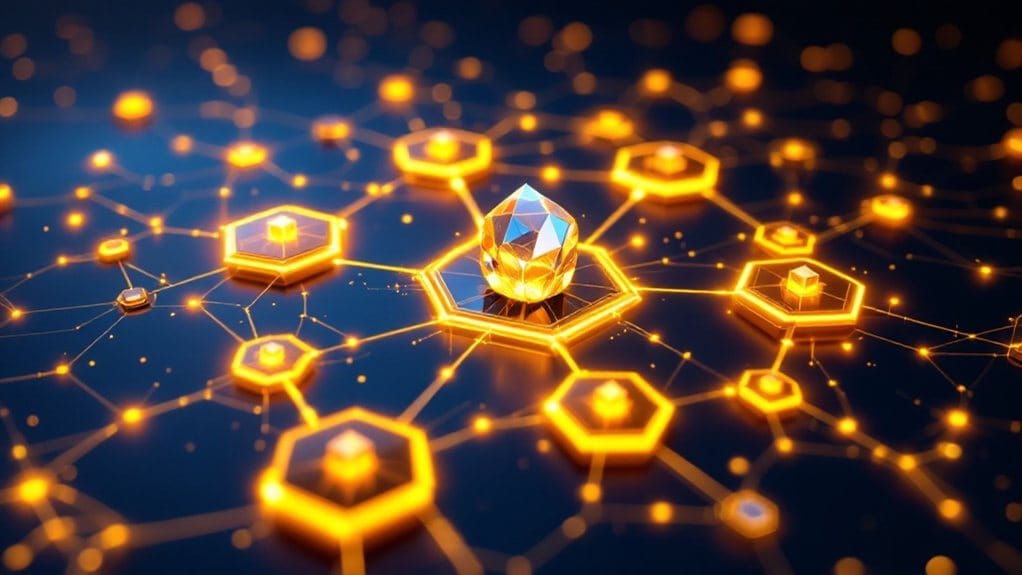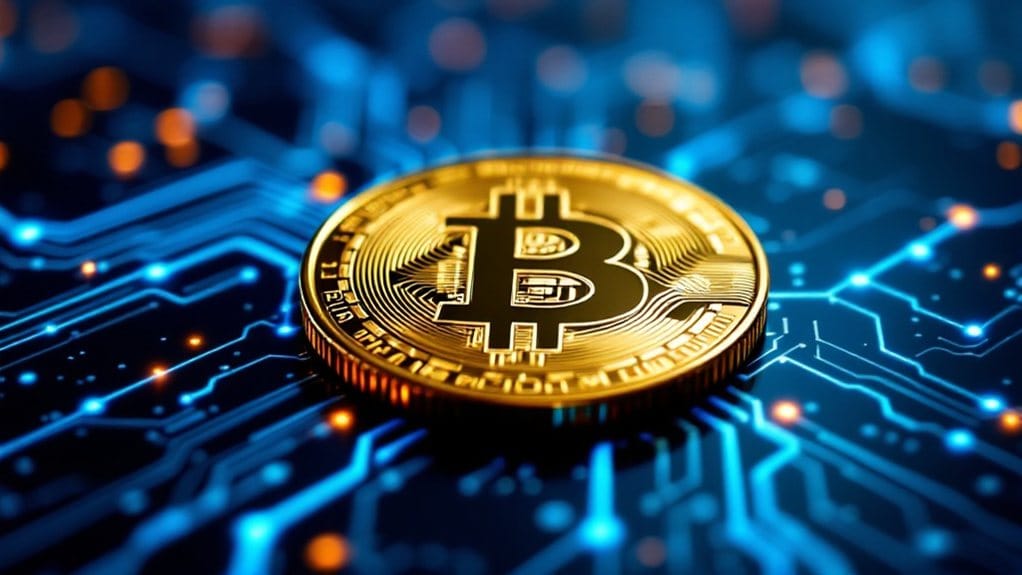Investment DAOs democratize venture capital by enabling collective investment through blockchain-based governance structures. These decentralized organizations pool resources from diverse participants, utilizing smart contracts for secure transactions and transparent decision-making processes. Members gain voting rights through governance tokens, allowing participation in investment strategies across sectors like NFTs, DeFi, and Web3 projects. While regulatory challenges exist, Investment DAOs represent a significant evolution in accessible investing, offering opportunities previously reserved for traditional venture capital firms. Further exploration reveals how these innovative structures are reshaping financial markets.

While traditional investment vehicles have long been restricted to accredited investors and financial institutions, Investment DAOs (Decentralized Autonomous Organizations) are transforming the investment landscape by democratizing access to collective investment opportunities. These blockchain-based organizations utilize smart contracts to pool resources, enabling transparent and secure transactions while distributing governance tokens that grant voting rights proportionate to members’ contributions. Sector-specific DAOs offer specialized expertise in areas like NFTs, DeFi, and Web3 investments.
The operational framework of Investment DAOs centers on collective decision-making, where members vote on investment strategies and governance changes through automated smart contracts. Members contribute capital, typically in cryptocurrencies or stablecoins, to a communal treasury, creating a pooled investment vehicle that benefits from collective wisdom and diverse perspectives. This structure enables fractional ownership of larger investments, greatly lowering barriers to entry for individual investors. Regular governance audits enhance overall accountability and strengthen member confidence in the system. Uniswap tokens demonstrate how governance mechanisms can successfully drive community participation and decision-making.
Investment DAOs empower collective decision-making through smart contracts, pooling resources and wisdom while democratizing access to significant investment opportunities.
Investment DAOs are changing venture capital by providing decentralized funding options that operate with unprecedented transparency. The integration with DeFi platforms improves funding opportunities, while blockchain technology guarantees all transactions and decisions are immutably recorded. This model particularly benefits early-stage startups by providing access to a diverse pool of investors and resources.
However, investors must carefully consider the associated risks and challenges. The decentralized nature of DAOs can complicate decision-making processes when consensus proves elusive, while regulatory uncertainty poses ongoing concerns for participants. Smart contracts, despite their security features, remain vulnerable to technical exploits and bugs, necessitating thorough due diligence and risk management strategies.
The economic impact of Investment DAOs extends beyond individual investment opportunities, contributing to broader financial democratization through community-driven approaches to capital allocation.
These organizations adapt swiftly to market changes, enabling rapid responses to emerging opportunities while fostering shared knowledge and resources among members. As the investment landscape continues to evolve, Investment DAOs represent a notable shift toward more inclusive, transparent, and efficient investment mechanisms, though their success ultimately depends on effective governance structures and member education.
FAQs
How Do Investment DAOS Handle Regulatory Compliance Across Different Jurisdictions?
Investment DAOs manage regulatory compliance through multi-jurisdictional strategies, including jurisdiction selection based on favorable legal frameworks, such as Wyoming and Vermont’s DAO-recognition laws.
They implement thorough compliance measures, including VASP regulations, anti-money laundering protocols, and required licensing.
Working with legal experts, DAOs establish governance structures that satisfy diverse regulatory requirements while maintaining operational efficiency through regular audits and transparent reporting mechanisms.
What Happens to Invested Funds if an Investment DAO Dissolves?
When an investment DAO dissolves, invested funds undergo a systematic distribution process.
Initially, the DAO must settle outstanding debts and obligations, after which remaining assets are distributed among members according to their ownership stakes.
Smart contracts typically automate this process, ensuring transparent and equitable distribution, while adhering to the operating agreement’s predetermined dissolution protocols and relevant jurisdictional requirements for asset liquidation and member compensation.
Can Investment DAOS Be Hacked, and How Are Funds Protected?
Investment DAOs can be hacked through smart contract vulnerabilities, governance attacks, or technical exploits.
To protect funds, these organizations typically implement multi-signature wallets requiring multiple approvals for transactions, conduct regular smart contract audits, and utilize decentralized governance structures.
Despite these safeguards, historical incidents like The DAO hack of 2016, which resulted in $50 million losses, demonstrate the importance of robust security measures and continuous monitoring.
What Voting Power Do Small Investors Have in Investment DAO Decisions?
Small investors in investment DAOs typically have limited direct voting power, as influence correlates with token holdings.
While they can participate in governance decisions through token-based voting mechanisms, their impact may be minimal compared to larger stakeholders.
However, snapshot voting mechanisms protect their interests by preventing post-proposal token manipulation.
Community engagement through discussions and proposal submissions can amplify their voice beyond mere token holdings.
How Do Investment DAOS Verify the Identity of Their Members?
Investment DAOs utilize multi-layered identity verification systems through platforms like BrightID and Fractal ID.
These systems combine decentralized social verification, where members validate each other’s identities through trusted connections, with KYC processes that guarantee regulatory compliance.
Smart contracts automate the verification protocols while maintaining privacy, and anti-Sybil mechanisms prevent identity manipulation by certifying each participant has only one verified account.









